
*Multi-region computations in the brain*
When two regions are better than one...
doi.org/10.1016/j.ne...
#neuroskyence
@mathiassablemeyer.bsky.social
Postdoc working on human cognition about abstract concepts at the SWC, London. Cog/comp-(neuro)scientist wannabe; adequate climber.

*Multi-region computations in the brain*
When two regions are better than one...
doi.org/10.1016/j.ne...
#neuroskyence
If you have ever wondered what happens in your brain when you look at those scatterplots from your research data (hoping to find a significant correlation!)... check our paper out !
22.01.2026 22:03 — 👍 6 🔁 1 💬 0 📌 0
At @elife.bsky.social you can now include explainer videos with every figure. Like going to a seminar while you engage with the paper. First example here elifesciences.org/articles/106...
Click the arrows next to each figure to get a video of @mathiassablemeyer.bsky.social explaining it for you!
The code for the analyses is at github.com/mathias-sm/AGeometricShapeRegularityEffectHumanBrain, the fMRI data is at openneuro.org/datasets/ds0... and the MEG data at openneuro.org/datasets/ds0...
If you're looking into it and missing anything, ping me!
I want to thank all the people (+fundings) behind the open-source projects that saved me countless hours during this project @scikit-learn.org @nilearn.bsky.social MNE fmriprep BIDS @openneuro.bsky.social the entire free-software stack that supports science.
You’re awesome.

We find that after visual processing, the mere perception of a geometric shape induces a representation based on exact geometric features. We connect this to work on a Language of Thought where perception triggers a reverse engineering of the shape's "program": www.sciencedirect.com/science/arti...
22.01.2026 18:29 — 👍 0 🔁 0 💬 1 📌 0We compare many models: various layers of CNNs, various neural network architectures, models based on shape skeletons or on lexical access to shape names, etc. In fMRI, we also zoom in on both ventral areas and areas previously identified as math-responsive.
And there'll be more—stay 📈 𝒯𝓊𝓃𝑒𝒹 📉!

During passive shape perception in MEG in adults, we find dissociation in space and time between two models of geometric shape perception. Early visual activity resembles bottom-up perception as embodied by a CNN. Subsequent parieto-frontal activity is best explained by geometric features.
22.01.2026 18:29 — 👍 0 🔁 0 💬 1 📌 0
In a simple fMRI visual localiser, with no task, comparing single shapes to other single visual categories (faces, tools, houses) elicits an under-activation of the visual pathways. It also elicits an over-activation of (right) IPS in adults and children, close to typical math-responsive areas.
22.01.2026 18:29 — 👍 0 🔁 0 💬 1 📌 0
First, the behaviour: when faced with finding an intruder within quadrilaterals, the accuracy and response time of humans vary a lot and are well predicted by the exact geometric features of the shapes—more so than by their visual features embodied in a neural network.
22.01.2026 18:29 — 👍 0 🔁 0 💬 1 📌 0Thanks to @lucaswbenjamin.bsky.social @cassandrapw.bsky.social @maxencepajot.bsky.social @theomorfoisse.bsky.social Fosca al Roumi @standehaene.bsky.social; reviewers, editors; labs I was in at some point @unicog.bsky.social @sainsburywellcome.bsky.social and @fondationfyssen.bsky.social's funding
22.01.2026 18:29 — 👍 2 🔁 0 💬 1 📌 0
Excited to see this Version Of Record of my work out in @elife.bsky.social!
elifesciences.org/articles/106...
We investigate the mental representation of geometric shapes in adults and children using fMRI and MEG. Each figure has a video of me explaining the figure: go and read it, or read below.
Amazing! We intentionally stayed away from motor tasks and representations, but it's exciting to see this convergence. Just in case, I'll also send this to Lucas Tian (not on bsky), who has to rely on explicit tracing for his own project–but ultimately cares about abstract shape representation!
24.12.2025 11:50 — 👍 2 🔁 0 💬 0 📌 0Thread of French and Dutch research institutes slowly unsubscribing from web of science (and thence impact factors).
03.12.2025 06:53 — 👍 78 🔁 35 💬 2 📌 6
1/ Excited to share that our symposium review covering cognitive mapping in the PFC just came out in the Journal of Neuroscience: www.jneurosci.org/content/45/4...
15.11.2025 18:03 — 👍 9 🔁 9 💬 1 📌 2
Will you be at #SfN25? Stop by the Sainsbury Wellcome Centre’s posters and talks! @sfn.org
14.11.2025 16:00 — 👍 10 🔁 3 💬 1 📌 0
Also check out our review accompanying the symposium here: doi.org/10.1523/JNEU...
With Sebastijan Veselic, Elena Gutierrez, @melgaby.bsky.social @sandra-neuro.bsky.social @mathiassablemeyer.bsky.social

Come join us at #SfN25 for the minisymposium "Cognitive Maps in the Prefrontal Cortex"!
Saturday, Nov 15, 2:00-4:30pm, Room SDCC 6CF
www.abstractsonline.com/pp8/#!/21171...
We will explore how the PFC represents structured relationships across species and how this supports flexible behavior.
I’m super excited to finally put my recent work with @behrenstimb.bsky.social on bioRxiv, where we develop a new mechanistic theory of how PFC structures adaptive behaviour using attractor dynamics in space and time!
www.biorxiv.org/content/10.1...
The heartbreaking thing about this
is that there’s already a proven way
to invest lots of money in a knowledge machine
that produces unforeseeable results
that include fantastically profitable ideas
(and some life-saving ones)
and generally benefit society
and this machine is called
a university
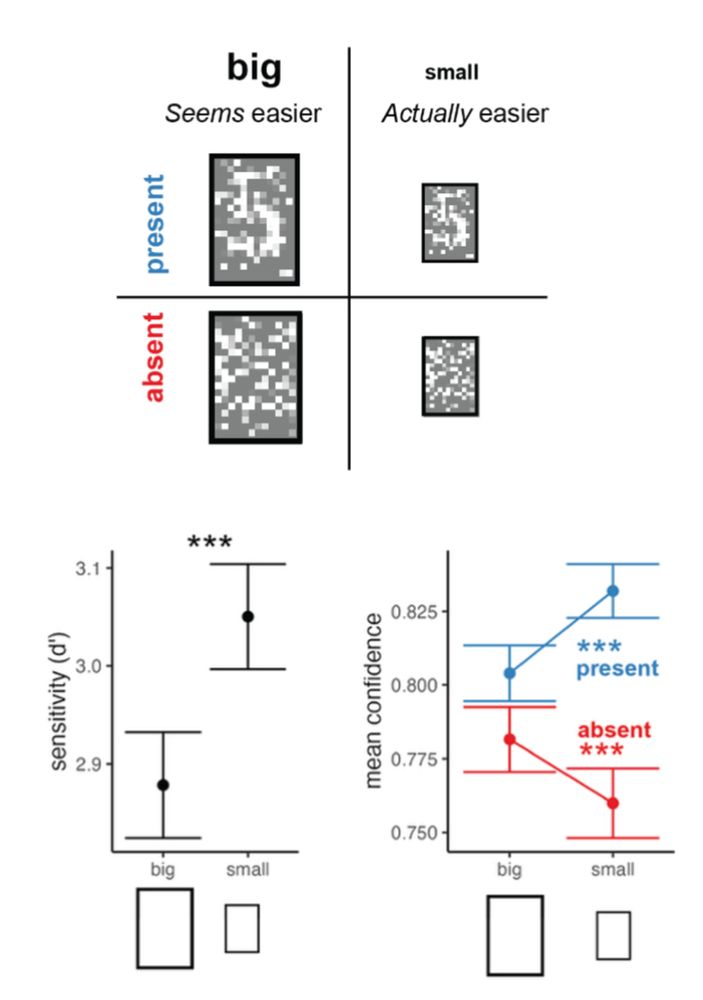
Confidence in absence as confidence in counterfactual visibility: a CogSci proceedings paper with star MSc student Maya Schipper, is now out on PsyArXiv:
osf.io/preprints/ps...
🧵👇
Anyone with a WSJ subscription & app can check whether that summary appears in anything actually written by WSJ? Somehow I would find it even more fitting/absurd if this was an AI-powered notification summary.
www.wsj.com/tech/ai/chat...
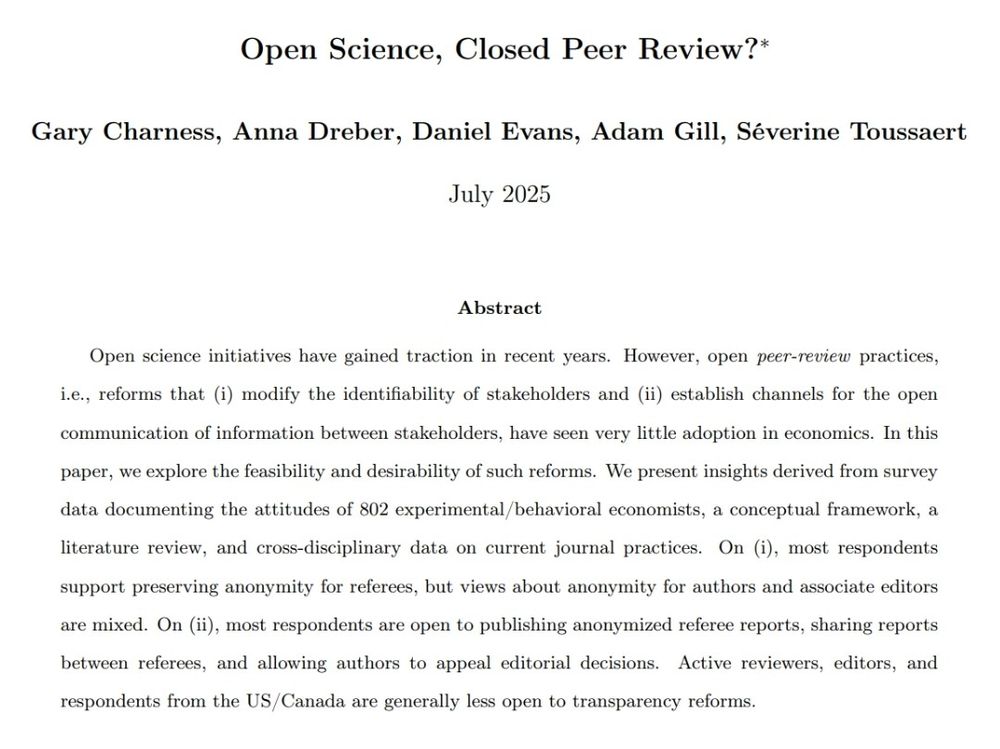
Open science initiatives have gained traction in recent years. However, open peer-review practices, i.e., reforms that (i) modify the identifiability of stakeholders and (ii) establish channels for the open communication of information between stakeholders, have seen very little adoption in economics. In this paper, we explore the feasibility and desirability of such reforms. We present insights derived from survey data documenting the attitudes of 802 experimental/behavioral economists, a conceptual framework, a literature review, and cross-disciplinary data on current journal practices. On (i), most respondents support preserving anonymity for referees, but views about anonymity for authors and associate editors are mixed. On (ii), most respondents are open to publishing anonymized referee reports, sharing reports between referees, and allowing authors to appeal editorial decisions. Active reviewers, editors, and respondents from the US/Canada are generally less open to transparency reforms.
New survey of 802 experimental/behavioral economists finds:
(a) most support preserving anonymity for referees
(b) most are open to publishing anonymized referee reports
Preprint: osf.io/preprints/me...
By @danieljevans.bsky.social, @adam-gill.bsky.social, et al.
It was really great to meet and work with @maxencepajot.bsky.social as he was trailblazing this—congrats!! 👏
Takeaways: you can predict number frequencies in books by thinking of numbers as programs, testing mental representation ideas from doi.org/10.1016/j.ti...
See Maxence's great thread below👇
Some numbers seem to show up everywhere. Think of 10, 12, 24, 36...
Others—like 26 or 34—don’t get the same attention.Why? In our new paper with @standehaene.bsky.social and @mathiassablemeyer.bsky.social, we argue it's because of how the mind builds number concepts.
🧵
doi.org/10.1016/j.co...

Retour d'une vieille rengaine: étouffer le palais de la découverte pour justifier son unification avec la cité des sciences et de l'industrie. Curiosité scientifique ≠ fascination technologique; ces institutions ont des rôles très distincts!
Signalez votre soutien www.change.org/p/sauvons-le...
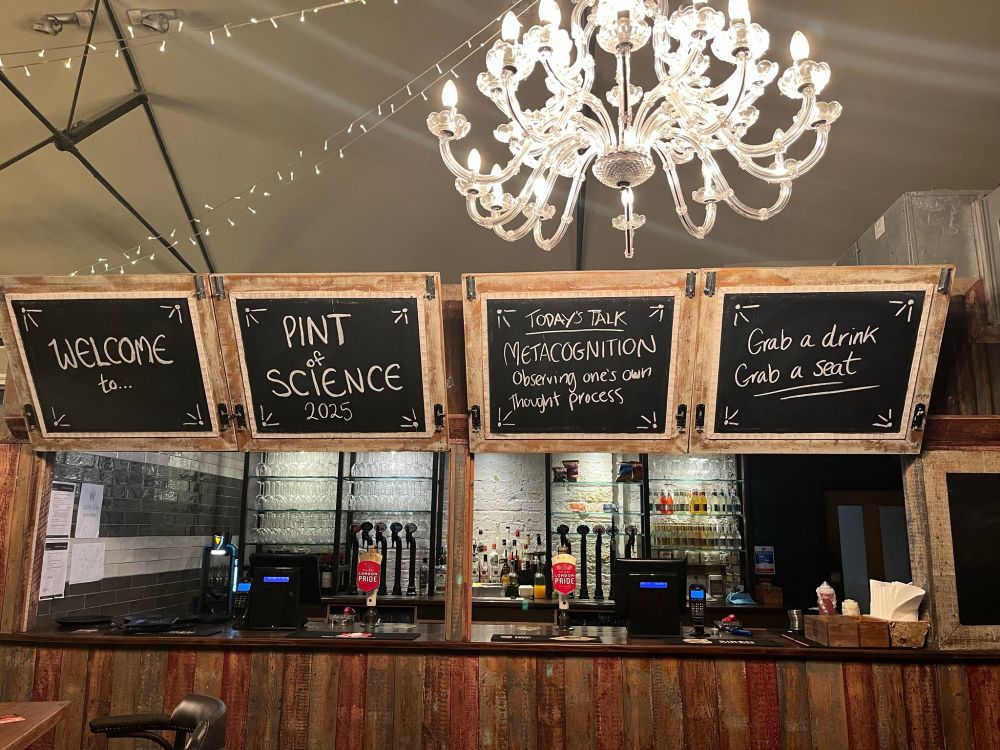
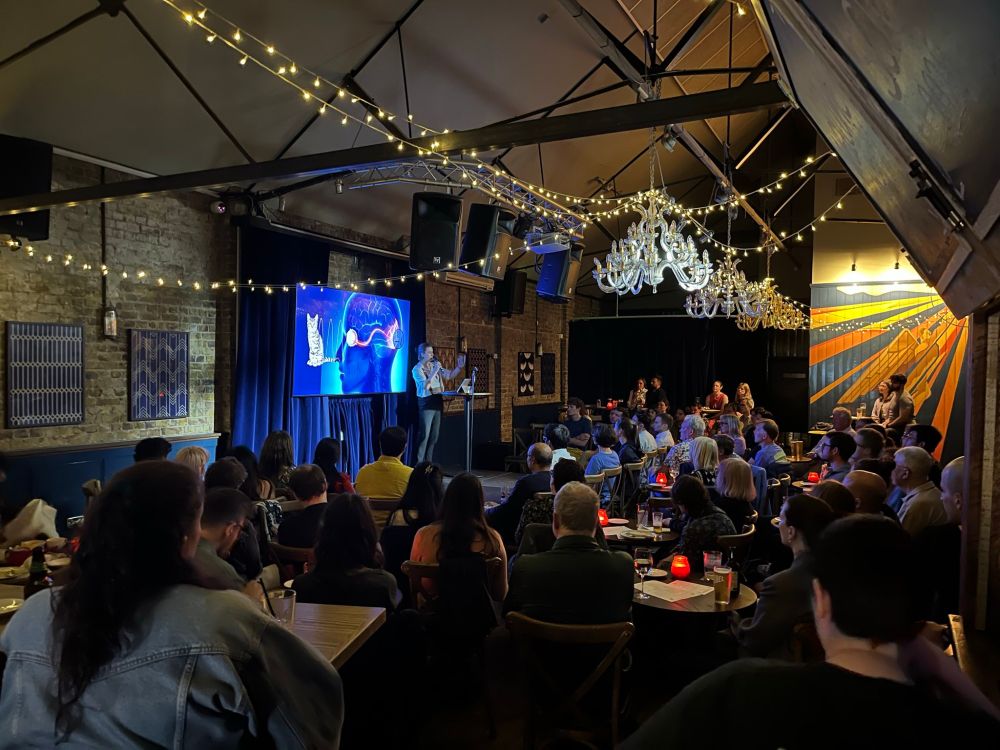
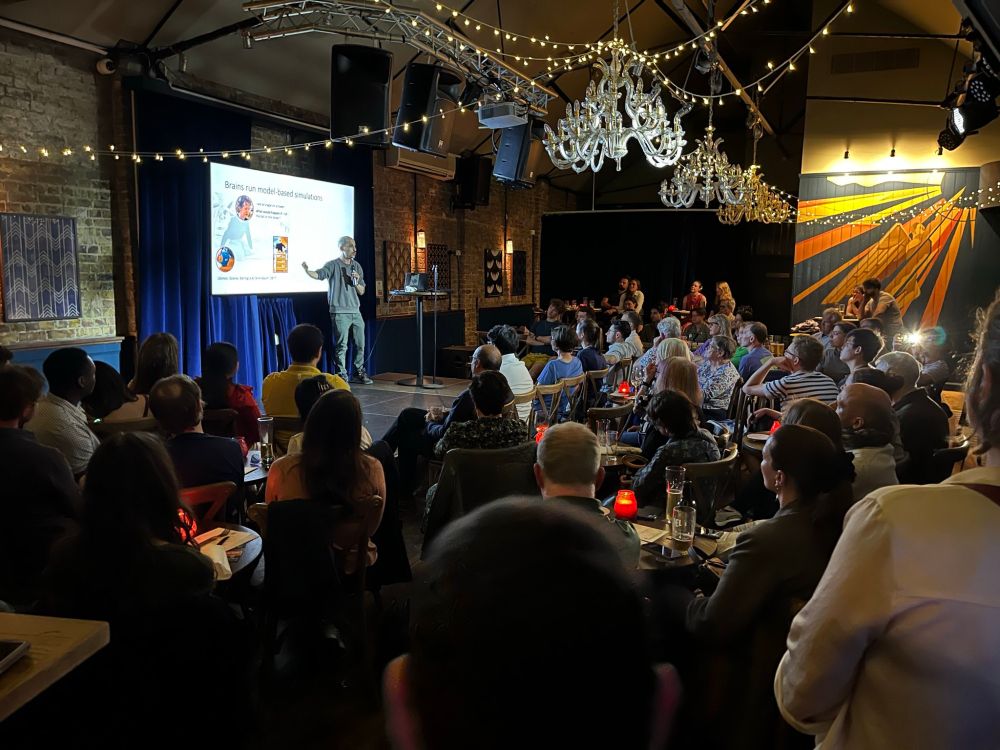
Second night of #pint25 was really fun 🧠🍻 @nadinedijkstra.bsky.social and @matanmazor.bsky.social gave spectacular talks and we couldn't stop the audience from asking questions—nor did we want to.
Can’t wait for tonight, grab your ticket and join us!
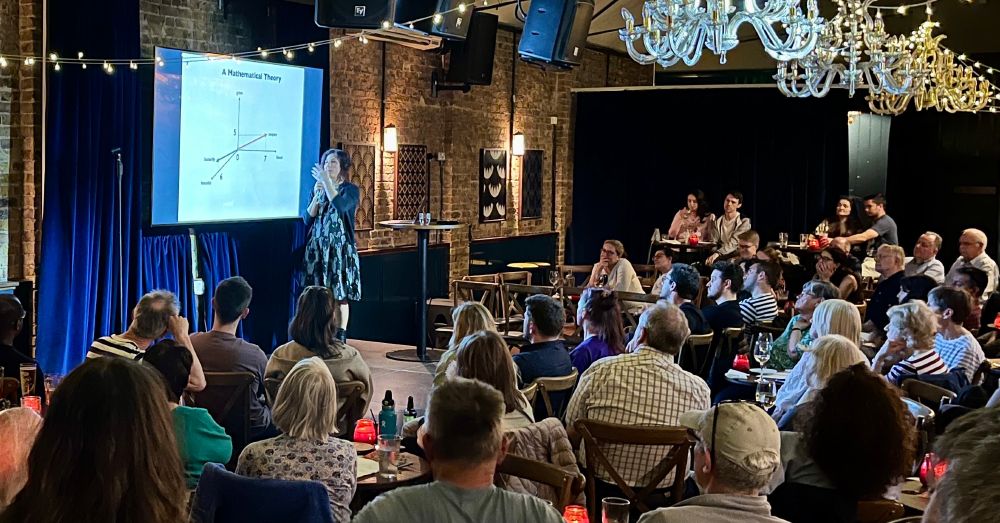
Pr. Mehrnoosh Sadrzadeh explaining "How Can Large Language Models Become More Human?" to a captivated audience.
#pint25 has started; it's great fun to see it come together! Join our "Beautiful Mind" theme at The George IV in Chiswick, or any other fascinating topics featured in pintofscience.co.uk
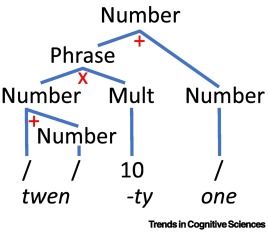
Online Now: Origins of numbers: a shared language-of-thought for arithmetic and geometry?
15.04.2025 12:41 — 👍 9 🔁 4 💬 0 📌 1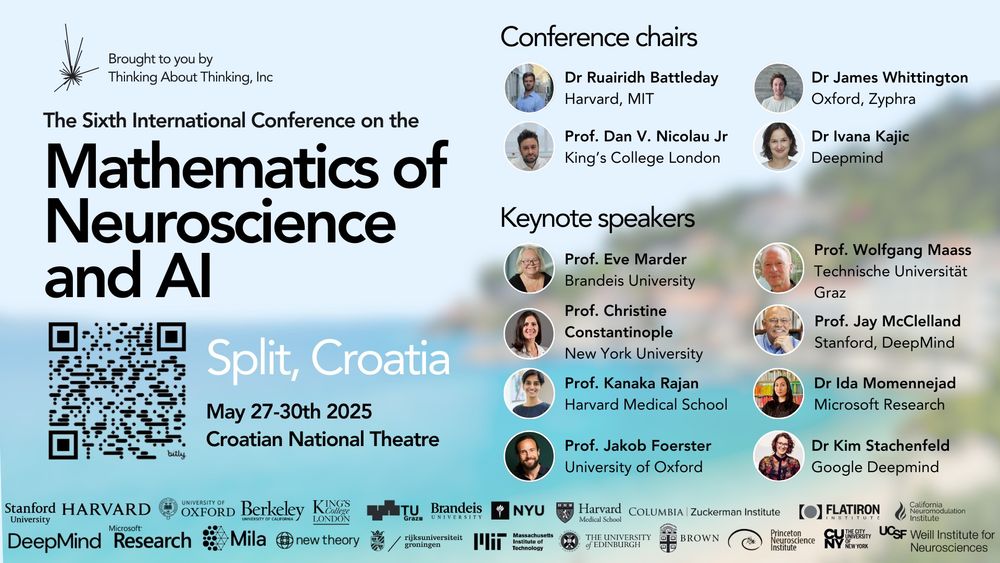
We're bringing together leading researchers from top institutions worldwide to Split, Croatia this summer. If you're passionate about brain-inspired AI, computational neuroscience, or fundamental mathematical principles driving intelligence, this conference is the place to be!
01.04.2025 13:23 — 👍 32 🔁 9 💬 2 📌 0